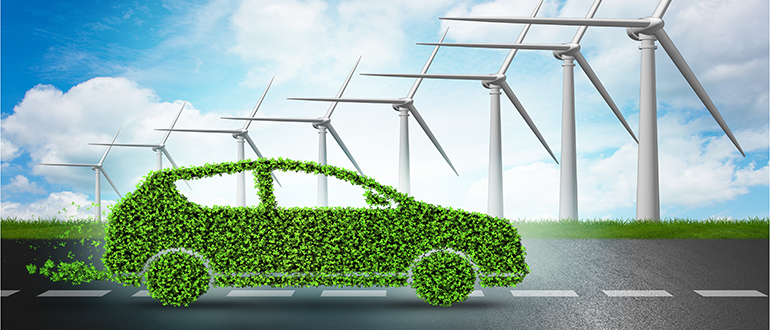Maria Broe and Thomas Dalgas Rasmussen
Master Thesis – Energy Technology - 2018
The global society is facing a huge challenge concerning global warming if the target of the renowned Paris Agreement, to keep the increase in the global average temperature well below 2 ℃ compared to pre-industrial levels, is to be met. The transportation sector consumes over one fourth of the total energy consumed globally and the CO2 emissions from the transportation sector are increasing due to a growing energy demand and no obvious solution to replace fossil fuels in the sector. The project investigates if it is possible to design a 100 % sustainable transport system within the boundaries of a 100 % renewable energy system. This is done for different scenarios with varying boundary conditions accounting for the uncertainties regarding the development in the European energy systems and electrification of transport.
The project has created a model of the future Danish energy system in the market simulation tool Sifre, where the main inputs are based on literature studies. Based on the assumptions of the project and the inputs to the model it is possible to meet all demands of the energy system, even in an isolated system with limited biomass resources. It is found that the socio economic costs of the system greatly decrease with an increasing degree of electrification, regardless of the development in the European energy systems. This underlines the value of electric vehicles and the demand for research and development within the field. For the remaining transport demand that must be satisfied by fuels other than electricity, the project finds that it is essential to satisfy the demand for jet fuel for aviation first since the only technology assumed able to produce jet fuel is the Fischer-Tropsch process. Gasoline, which can be utilised to satisfy other transportation demands than aviation, is produced as a by-product in the process.
Furthermore, the project finds that the carbon bottleneck can be broken by implementing emerging direct air capture technologies which penetrates the market if sufficient hours with low electricity prices are present. Electricity as a fuel for transportation is found to outcompete both the synthetic fuels in all scenarios and fossil alternatives. However, the pure production costs without externalities for the latter are lower than for the renewable synthetic fuels which call for political actions if the 100 % renewable energy system is to become reality.
Collaborating partner
Energinet
